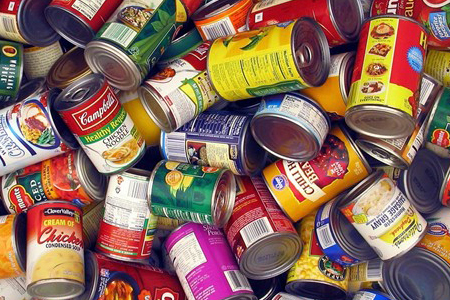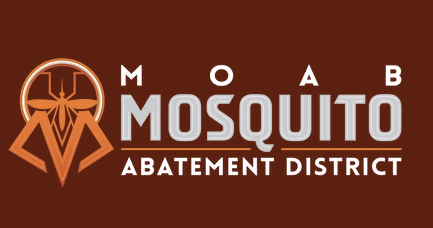Some information may be outdated.
The Moab Sun News needs your help. Show your support for independent community journalism and receive a digital edition emailed directly to you each week.
Arches and Canyonlands national parks are closed, after Moab Mayor Emily Niehaus, Moab Regional Hospital officials and the Southeast Utah Health Department all urged National Parks Service officials to shutter the tourist-heavy areas to stop the spread of coronavirus in the area.
“Arches and Canyonlands national parks will be closed to all park visitors until further notice,” read a statement from park public affairs official Lynn Mcaloon on March 27. The statement clarified that the closure is for “all recreational use of the park” including “vehicles, bikes, and pedestrians…including campgrounds, trails, backcountry, and roads.”
On March 31, the additional closures of Hovenweep and Natural Bridges national monuments in San Juan County was announced.
Policy changed after letters urging closure
In a March 26 letter urging the closure of Arches and Canyonlands National Parks, Moab Regional Hospital CEO Jen Sadoff and Chief Medical Officer Dr. Dylan Cole spoke bluntly about the risks they believed the parks presented.
“Tourists from areas with community spread of COVID-19 are using our grocery stores, interacting with the local community while picking up to-go food from restaurants, and staying illegally in nightly rental lodging in spite of the health department’s mandate,” the letter read.
In a letter dated March 25 from Southeast Utah Health Department Director Bradon C. Bradford, the health department official expressed “particular concern that the normal crowds that are drawn to the parks are coming from areas that we have little information about. Their interaction with park staff and the local community increases risk of disease transmission.”
The health department letter outlined serious cautions including information that over the weekend of March 20 to 22, after the SEUHD public health orders were issued, local parks “saw an average of 700 vehicles per day with approximately 90% from out of state.” It is unclear where that number was drawn from.
The letter also cites “a risk assessment conducted by park staff” which concluded that “there is no availability to replenish the stock of mission-essential consumables appropriate to maintain sanitized toilet facilities and provide EMS with appropriate personal protective equipment.
While the health department letter was sent to park officials on March 25, these concerns were not immediately made public but sent privately in order to give park officials “the opportunity to review and think about this request, as it is a very big decision,” said SEUHD Public Information Officer Brittney Garff in an email to the Moab Sun News.
“Out of respect for them, we made the decision to give them time to internally have some discussions, before opening it up to the public. We do understand how important it is to give the public this information, and in this situation we felt it would be most appropriate for all parties, including the public, if we gave the Parks the time they needed for internal communications, before making this public,” Garff wrote.
The health department’s letter was made public when attached to a press release from Moab Mayor Emily Niehaus on March 26.
“In the spirit of collaboration with our local health department and hospital, the City supports the temporary closure of Arches and Canyonlands National Parks,” Mayor Niehaus said in a statement released on March 26.
“Moab understands that a temporary closure of these Parks may be a disappointment to our local community, but we feel that such a step is in the best interest of our residents in the long term,” read Niehaus’s letter to Kayci Cook, superintendent of the National Park Service Southeast Utah Group.
The statement from Niehaus commends park employees for their historic collaboration but urges closure in the face of the coronavirus pandemic, pointing to guidance from the local health department and Moab Regional Hospital.
Other National Park Closures
Canyonlands and Arches National Park now join several National Parks—including Yosemite, Yellowstone and Rocky Mountain national parks—that have closed their gates altogether until further notice after crowds of visitors gave rise to concerns about proper physical distancing.
San Juan Public Health in San Juan County asked the park service to close Canyonlands, Hovenweep National Monument and Natural Bridges National Monument on March 26 before officials announced their closure on March 31.
Some NPS staff and health officials are also pushing for the closure of the Grand Canyon National Park.
Arizona Representative Raúl Grijalva, chairman of the House Natural Resources Committee which oversees the national parks, was quoted by online news source The Hill as saying “Why expose both the public and the workforce of the park to the situation of this virus? There has to be a uniform policy…and that obviously includes the Grand Canyon.”
Rural areas with tourist economies at health risk
Data analysis from rural counties is revealing that rates of infection in tourist-heavy areas like Grand County and ski areas in northern Utah and Colorado’s western slope are “three times higher” than similar rural areas, according to an analysis by the Daily Yonder.
“We’ve certainly seen the effects of coronavirus already really hit the Front Range,” said MRH’s Dr. Cole, “and those numbers really started to climb first in the ski towns in the tourist communities, likely directly as a result of the intermingling of people from all over.”
Utah’s Summit County issued the state’s first shelter-in-place order on March 25 and currently has 195 confirmed cases as of April 1.
PDF copies of all the cited letters are available to read at www.moabsunnews.org
Closure comes after outcry from officials
Appreciate the coverage? Help keep local news alive.
Chip in to support the Moab Sun News.



